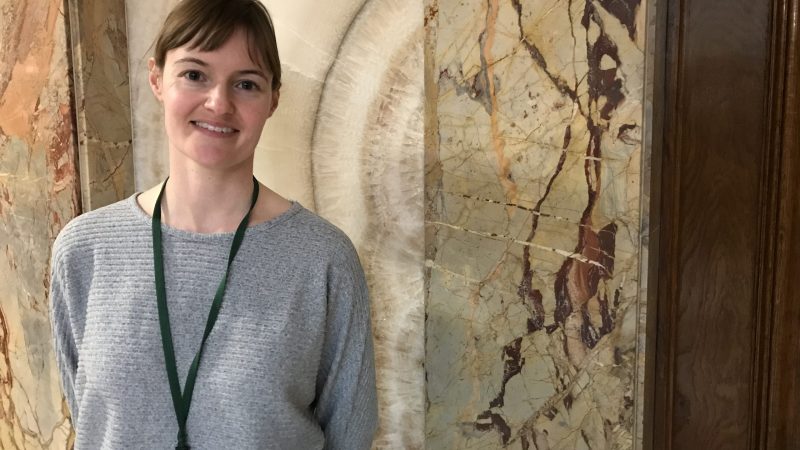Katherine Smith is an occupational therapist (OT). She works in Wandsworth Council’s enablement team, where she helps people to get back on their feet after a spell in hospital. An OT for 15 years, she has had many roles across London, but knew from early in her career that working in the community was her passion.
What does an occupational therapist do?
We support people to be as independent as possible and lead the lives they want to lead. That looks different for everyone, and the nature of your work varies a lot. As an OT, you work across all sorts of settings; children’s services, mental health, social care, charities, neuro-disability and stroke rehab – but I knew quite early on I wanted to focus on community.
Tell us a bit about enablement
We provide care and rehabilitation to people coming out of hospital after a fall, an infection, a heart attack – any number of things. We are there from the beginning, assessing them within 48 hours.
We set short term goals – an example might be to get themselves washed and dressed without support within a few weeks. We work intensively towards that goal, reviewing the person every week. And we look at what equipment and adaptations can be provided to increase the client’s independence.
We oversee the person’s care package too, which is pivotal. This could mean up to four visits a day to support them with tasks like meal preparation, personal care or getting from bed to chair. We also link up with other services – GPs, physios, or community groups like Age UK Wandsworth, which has a good home from hospital service.
Who is enablement for?
We work with anyone over 18 who has the potential to progress – there’s no age cut off. We see people aged 95 or older who do amazingly well and make great gains, ending the service with no ongoing care. People can really surprise themselves.
What challenges do people face when they come out of hospital?
The initial two weeks are the hardest, when people feel most anxious. It’s a shock; they might have been in hospital for a long time. Even when they are relatively well, that transition really throws people.
Often when people have been active for their entire lives, rushing from one thing to another, they think that if they can’t do something in a particular way, they can’t do it, full stop. Enablement is about helping them realise that you can adapt that activity, use a piece of equipment you haven’t used before, for example.
What’s the best thing about your job?
I love to see how people progress. When you’ve worked with someone from the very beginning and know how they were, and then you do your final visit, and you can see the change, it is lovely. Even if you have someone who needs ongoing care you can still make a massive difference to maximise their independence, quality of life and wellbeing.
Do you have an example of how it works in practice?
A client who previously didn’t have care needs had gone into hospital after a fall. Their mobility was reduced and they needed help when they got up from the chair or the bed, which was very different to how they used to be.
They were looking for a lot of reassurance, so we practiced the movements and tasks that they found challenging. We looked at what was in the home and also quickly provided some new equipment to improve their independence and safety, such as bed and toilet equipment.
They made fantastic progress. Once we’d got over the initial stages, everything just followed. We could gradually reduce their package until eventually they had no ongoing care needs.
What can you do to make daily life easier?
We provide aids and equipment but also advice. For example, if someone is struggling with fatigue, I might work with them to pace their activities or structure their day differently. I might suggest a simple piece of equipment like a perching stool in the kitchen.
We have a lot of options in the council. For example, we can provide care technology alongside other equipment if it will help someone be more independent – things like robotic vacuum cleaners, Alexas and ring doorbells, which can improve confidence levels. There are so many options, you can be very creative with your solutions.
How do people access the service?
Most of our referrals come from hospital, before the person is discharged, but we also see people in the community who would benefit. Family members, GPs or people themselves, who are struggling, can get in touch via the council’s adult social care team.
Find out more
Contact the adult social care team on the Wandsworth Council website.
